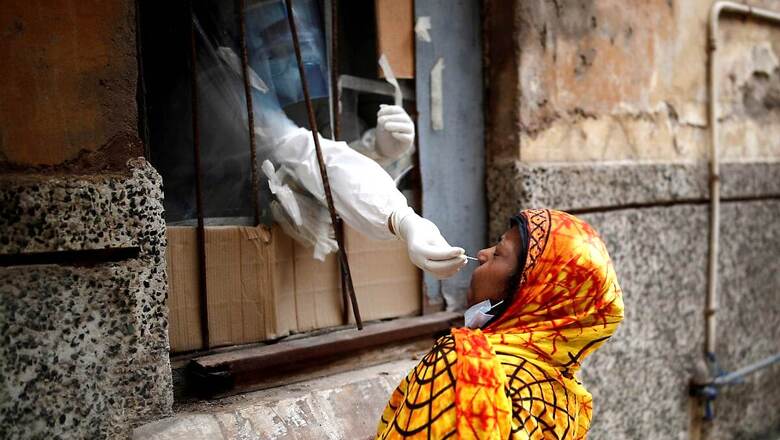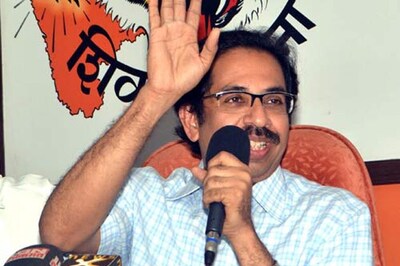
views
The Union Health Ministry on Thursday defended the growing share of rapid antigen tests in the total Covid-19 tests conducted across the country.
Experts have continuously drawn caution towards rapid antigen testing, which is deemed to be not as accurate as an RT-PCR test, due to its high false negative rate. This means that those testing negative on antigen tests may show symptoms a few days later, making it important for them to get an RT-PCR test, as well. Otherwise, it is advised that the person is tracked for a few days after them having tested negative.
The Indian Council of Medical Research (ICMR) had issued an advisory on the usage of antigen tests in June. Since then, many states have used the Rapid Antigen Tests (RAT) to scale up their testing for the SARS-CoV-2 infection.
The Health Ministry is being questioned about the continuous rise in use of antigen tests, even as Covid-19 cases continue to climb in the country. Health Ministry Secretary Rajesh Bhushan has defended the increased use of the RAT tests, especially in containment and buffer zones.
He, however, added that states must also fully utilise the installed capacity of RT-PCR (Reverse Transcriptase- Polymerase Chain Reaction) testing resources.
Questions were raised after it came to light that in many states, which have a high proportion of antigen tests being used in daily testing, negative RAT results were not being followed up with an RT-PCR test. This is contrary to ICMR protocol. It also comes amid alarm over the high rate of false negatives of rapid antigen testing.
ICMR Director General Dr Balram Bhargava had previously said that antigen tests account for nearly 35% of the total tests in India. However, the central government has not yet provided a real-time break up of the tests used each day.
“There was a period when no rapid antigen tests were available in the country. So if you are using March and April data to compare it with testing data of August, you find an acute difference. There is no uniform picture across the country,” Bhushan said.
He said that in Tamil Nadu, 90% of Covid-19 testing was being conducted through the rapid antigen method. “There are other states where RT-PCR testing capacity is limited. In those states…as a public health manager, what do you do, you cannot be satisfied with limited testing,” Bhushan said, adding that according to ICMR guidelines, RAT was an ideal option for densely populated areas, containment zones and buffer zones. “So why not use them there,” he said.
The Union Health Secretary added that for the states which were not using the optimal capacity of RT-PCR testing available, Centre has drawn their attention towards the issue.
In Delhi, 28,835 tests were conducted on Wednesday. Out of these, 20,965 tests were done using RAT and the rest were performed using RT-PCR, TrueNat and CBNAAT.
The Delhi government has ramped-up antigen testing, even as the Delhi High Court pulled up the city government for relying on them overtly. The court questioned the Delhi government on the issue while hearing a writ petition on testing, especially after Delhi’s first sero-survey results showed an infection prevalence of 23% in the city.
Between September 1 and September 4, India conducted 11.7 lakh tests and since January, 4.5 crore tests have been carried out.




















Comments
0 comment